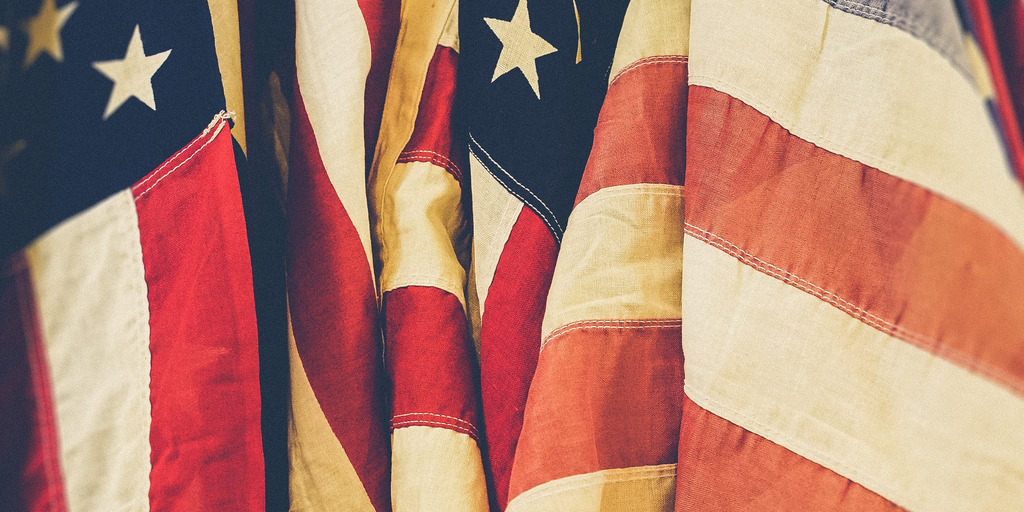by CHRISTIAN LAMMERT
The first Tuesday in March is known as "Super Tuesday" in the US presidential election. Many states simultaneously hold their pre-election campaigns on this early date, in the hope of exerting a greater influence on their party’s choice of candidates for the presidential elections. While Republicans consider incumbent Donald Trump to be a firm fixture, this year's Democratic pre-election campaign is exciting because of the sheer range of different candidates. A preliminary decision could be reached on this year's Super Tuesday, March 3, when a total 15 states will vote, including influential ones like Texas and California.
It is not yet clear how the recently failed impeachment trial against Donald Trump will affect voting. As yet, there is no clear favorite among the Democrats. Amid all the uncertainty about the future presidential candidate, one clear loser has emerged from the first primaries: Former Vice President Joe Biden, who failed to establish himself in the top ranks, defying expectations.
The chaotic start of the Democratic primaries in Iowa is just one visible manifestation of the stress test that US democracy is currently undergoing. A perpetual election campaign, an ideological split among the political elites that is obstructing the political process, and a president who is not even trying to overcome this split and represent the entire population. On the contrary, President Trump fuels social resentment and deepens the split in US society. His unorthodox and disruptive political style widens the gap between the two political camps.
Party polarization blocks political processes
In its current issue, the Bertelsmann Stiftung's Sustainable Governance Indicators (SGI) for the first time evaluates the degree of party polarization and the ability of the political system to reach cross-party political compromise. With only 3 out of 10 possible points, the USA occupies one of the bottom places in this indicator. Its country report on the US states: “Party polarization has been the driving force behind political gridlock and the growing incapacity of the government to fulfill its function in recent years… Data on individual congressional members’ voting records shows that the most recent Congresses have been the most severely polarized in more than a century…The four most recent Congresses, from 2011- 2018, have been the least productive of any Congresses in the modern era."
This severe social and party-political polarization has sparked a partial gridlock of the political process. Whether the issues at stake are budget, taxes, environment and climate, abortion or the equality of homosexuals, today's Republicans and Democrats differ fundamentally in both what they identify as problems and solutions. In view of narrow majorities in presidential and congressional elections, political debate is fierce and non-partisan compromise and cooperation are becoming increasingly rare.
Faced with the political impasse in Washington, D.C., US presidents are increasingly resorting to executive orders. This allows them to push their political agenda past Congress. Even before Trump entered the White House, the spectre of the imperial presidency had established itself, a trend which had its roots in the massive expansion of executive power in the 1960s and 1970s. Government by decree is becoming the norm and the power of the legislature is diminishing. President Trump in particular shows little respect for the established mechanisms of checks and balances within the US political system. He was not afraid to declare a national state of emergency in order to use budget funds to build a wall on the border with Mexico.
Diminishing trust in political institutions
But Trump is merely a symptom of the deep democratic crisis in the US that has arisen in recent decades. In addition to the afore mentioned polarization, the crisis also stems from an extremely unequal distribution of income and wealth. While the highest earning 1 percent have been able to continuously increase their share of overall income since the 1980s, the middle and lower income groups have seen their earnings stagnate. Economic, labour market and social policies are no longer able to compensate for the unequal income distribution produced by the market. More and more Americans are living from paycheck to paycheck, and the low-wage sector has expanded dramatically. In such an economic situation, many people are unable to save for their retirement. As a result, citizens lose confidence in politics and its actors. The gap between society and the political elite widens.
Besides political institutions, which inspire diminishing amounts of confidence, the political parties are the second loser of the crisis. On the one hand, they appear strong because they control the work of Congress. On the other hand, they are hardly able to unite the divergent political, social and societal interests within their party constituency. Both parties are severely fragmented. The Democrats' current pre-election campaign is an example of this. The influence of the party leadership on the selection of candidates has declined sharply, with the party base dominating the process. The Republicans did not want Trump as their candidate in 2016 and the Democratic party leadership is also struggling to control their selection process.
Democratic institutions are still reasonably robust in the face of Donald Trump's style of government. However, the problem-solving capacity of the political process has been greatly reduced by party-political polarization. The US presidential system suffers from the fact that the parties in Congress increasingly operate as if they are in a parliamentary system, something that was not envisaged by the founding fathers.
Christian Lammert is Professor of U.S. politics at the John F. Kennedy Institute for North American Studies at Freie Universität Berlin. He is a member of the network of experts in the Bertelsmann Stiftung's comparative study
. . Translated from the German by Jess Smee.



